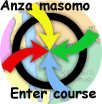ABOUT
KISWAHILI
Why
study Kiswahili?
Kiswahili,
also known as Swahili, is one of the major languages spoken in
Africa. It is the lingua franca of eastern and central Africa.
Kiswahili is also used in other parts of the world. It is aired
from radio broadcasts like British
Broadcasting Service, Voice
of America, Deutsche
Welle, and many others. It is heard in songs of famous singers
like Miriam Makeba, Michael Jackson, and Lionel Ritchie.
Kiswahili words are also used in films. Expressions like hakuna
matata ‘no problems’, and asante sana ‘many thanks’ from the movie
The Lion King are familiar to many non-Kiswahili speakers. African-Americans
refer to their annual cultural festival as Kwanzaa, a coined word
from Kiswahili kwanza ‘first’. Principles and symbols used in
this festival are expressed with Kiswahili words like the principle
umoja ‘unity’ and the symbol mkeka ‘mat’. The festival’s preferred
greeting is Habari gani? ‘What news?’ The Kwanzaa principles are
modeled after similar principles set for Tanzania’s Arusha Declaration
conceived by the late Mwalimu
Julius K. Nyerere (1967), the first president of the Republic
of Tanzania.
Kiswahili is taught in academic institutions from Japan in the
east to Mexico in the west. It can be used to fulfill language
requirements and to prepare researchers for fieldwork in eastern
Africa. Kiswahili language and its many varieties are of interest
to linguistic researchers. Kiswahili provides interesting issues
on language policies and language planning. The region’s many
ethnic groups are relevant to anthropological research. The Olduvai
Gorge is important to archeologists who are investigating human
origins. To geologists, the region has the highest mountain (Mt
Kilimanjaro), and the largest and deepest lakes (Lake Victoria
and Lake Tanganyika respectively) in Africa. The source of the
longest river (River Nile) in Africa is in this region.
Whatever area of research, knowledge of Kiswahili is essential.
Some scholars who have studied Kiswahili cite the following reasons:
• Kiswahili serves as a good vehicle to general African culture
• Kiswahili has such an exciting and remarkable history
• Kiswahili has a long written tradition
• Knowledge of Kiswahili enhances credibility of a researcher
on East African issues.
Who speaks Kiswahili?
Over 50 million people in eastern and central Africa speak Kiswahili.
A little over 1 million people speak it as their first language.
Most others speak Kiswahili either as a fluent second language
or as a third or fourth language. First language speakers are
found along the coast of east Africa stretching from southern
Somalia to the border between Tanzania and Mozambique, and in
the Indian Ocean islands of Unguja and Pemba (Zanzibar),
Lamu, and the Comoro
islands, and the north western part of Madagascar. However, in
Tanzania, where Kiswahili is both the national and official language,
children born in the last three decades speak it as their first
language
Kiswahili
belongs to the Bantu family of languages. Nouns are grouped into
different classes according to their meaning. Human beings, for
example, belong to one class: mtu ‘person’/watu ‘people’. Trees,
on the other hand, belong to another class: mti ‘tree/miti ‘trees’.
Diminutive and augmentative meanings are also expressed using
the noun class system. The following different forms of the word
ndege ‘bird’ indicate different sizes:
- ndege regular size
- kidege small size
- dege big size
Needless to say, Kiswahili has borrowed heavily from other languages
such as Arabic, Portuguese, German, and other European and Asian
languages. For example:
• numbers six (sita), seven (saba), and nine (tisa) as well as
words like kitabu ‘book’ and subiri ‘wait’ are borrowings from
Arabic.
• Other examples include:
• shule ‘school’ (German)
• bendera ‘flag’ (Portuguese)
• duka ‘store’ (Hindi)
• chai ‘tea’ Persian (Iran)

